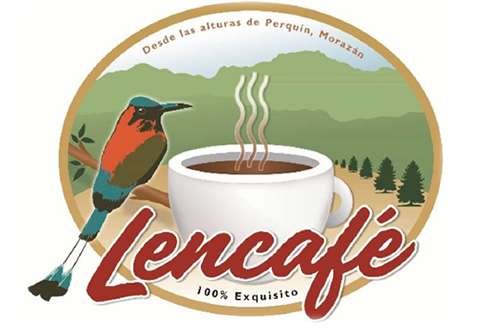During 2016 and 2017, NCBA CLUSA worked with El Salvador’s Ministry of Agriculture and Livestock programs, Amancer Rural and Prodemor Central, to establish 10 public-private partnerships with coffee producers.
Locking in over $400,000 in public sector resources and over $350,000 of private sector investment, these programs were able to funnel more than $750,000 into strengthening El Salvador’s coffee economy. A combination of business advisory services, with environmentally sustainable, low-cost farming techniques were key to the sustainability of this investment.
One of the key advisory services the project offers is NCBA CLUSA’s experience in evaluating opportunities to improve business management performance across all steps of the supply chain. The project trains producers on how to optimize steps in the coffee milling process, including de-pulping, washing, drying and classifying so co-ops can take an active role in adding value, differentiating their products and elevating them from the lower, commodity-grade beans. By combining technical assistance from the project in sustainable agriculture as well as the ability to bring together public-private partnership funding, coffee producers are able to invest in integrated programs that put them on a sustainable road to rehabilitating their farms.
One of the co-ops benefiting from this partnership has farmland at 1,300 meters above sea level in the Cacahuatique mountains of northern El Salvador, an altitude perfect for high quality coffee. Called ACALEM de R.L., the co-op was able to connect with the coffee project and the Amanecer Rural government program to expand their infrastructure with a new ecological coffee mill and roasting equipment. The upgrade has increased the cooperative’s range of services for its 56 members and earned them the title of being the only certified coffee milling and roasting provider in northern El Salvador.
“By joining forces with other institutions, we are able to provide the targeted technical assistance and resources that these coffee producers need to start rehabilitating, growing and evolving as farming cooperatives,” said General Director of the Ministry of Agriculture’s Amancener Rural and Prodemor programs Adalberto Hernadez. Since 2014, El Salvador’s Ministry of Agriculture and Livestock has invested over $15 million in coffee farming initiatives, many with private sector co-investment to rebuild El Salvador’s coffee economy.
ACALEM Co-op improved its branding with USDA support. ACALEM Co-op president Rene Martinez sees their mill having benefits that extend beyond their own members.
“We are very pleased that we are now able to process coffee for other small farmers in the region that didn’t have access to these services before,” Martinez said. By improving services, upgrading coffee quality and innovating new packages for their products, the cooperative will be able to increase sales by targeting new markets in other major cities in El Salvador, including the capital San Salvador.
NCBA CLUSA has worked with ACALEM Co-op for a few years, supporting business planning, organic soil training, marketing support and networking. This support is more impactful because of partnerships with farmers, the private sector and government support.
“By bringing public and private resources together, we are able to increase impact significantly. When the farmers see that the government and other organizations are contributing to rebuild their farms, it acts like a springboard. They feel more supported and more willing to invest in the rehabilitation process,” said Douglas Barcenas, who is leading the NCBA CLUSA project.
The U.S. Department of Agriculture (USDA)-funded Coffee Rehabilitation and Agricultural Diversification Project, which NCBA CLUSA manages in El Salvador, worked closely with the Salvadoran Coffee Council, CENTA-CAFÉ and the General Directorate for Rural programs.
While El Salvador’s coffee industry has experience occasional periods of instability over the decades, coffee leaf rust, climate change and market volatility have devastated the national coffee economy in recent years. The USDA El Salvador Coffee Rehabilitation and Agricultural Diversification Project is working with over 7,500 producers and 228 producer organizations and co-ops transitioning coffee farms to rust-resistant varieties, introducing low-cost, sustainable agriculture techniques and improving business management practices in an integrated approach to increasing competitiveness, reducing environmental impact and improving worker health across the industry.



